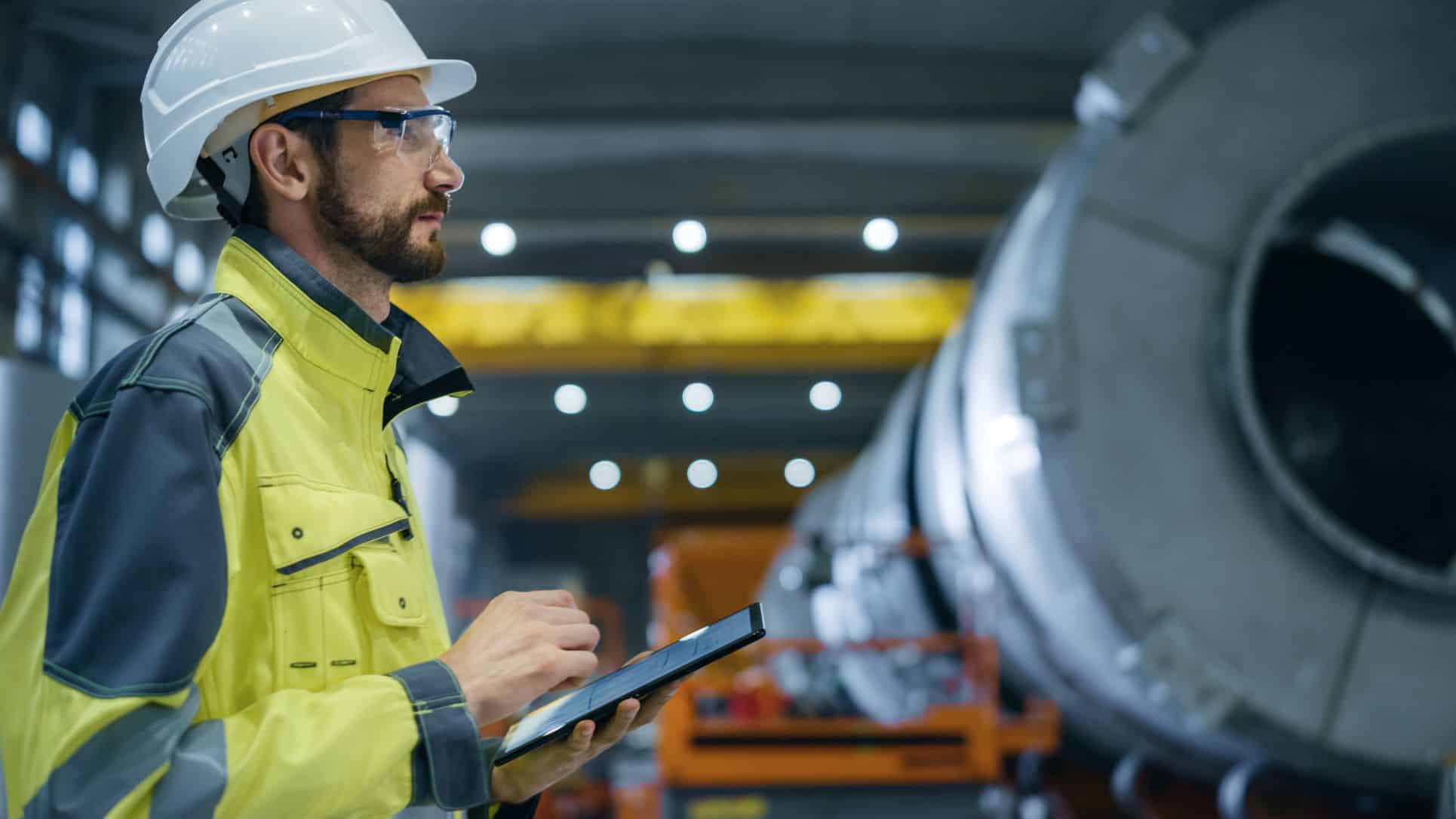With digital transformation taking hold across industry and manufacturing, the metals industry is no exception. Fabrication businesses are seeing the extensive benefits that digital transformation can deliver, including:
- Increased operational efficiency, particularly in maintenance
- Greater integration and insight in supply chain and inventory functions
- Access to performance alerts and equipment controls remotely, from anywhere
The cumulative effect of these benefits creates clear-cut competitive advantages in a number of areas: reducing costs, improving margins, increasing production quality and efficiency, and boosting employee satisfaction, to name just a few. It is clear that in the metals industry, digital transformation represents the next step forward for companies that wish to remain competitive.
Why the metals industry is undergoing a digital transformation
Digital transformation in the metals industry — and across manufacturing — is occurring for a number of reasons. Primary among these is the increased availability and accessibility of the Industry 4.0 and Industrial Internet of Things technology (sensors, communications infrastructure and remote access tools) that drive digital transformation. After years of promise and anticipation, it is finally viable and affordable to implement this technology in nearly any industrial facility. As more and more facilities do so, it is becoming increasingly necessary to adopt digital transformation just to keep pace with competitors.
Another reason behind digital transformation in steel industry businesses is the ongoing need to improve profit margins, especially in the face of rising supply chain and shipping costs. By maximizing efficiency within the facility, organizations are better able to weather external macro forces that are beyond their control.
Digital transformation also helps metal industry manufacturers to address the challenges of today’s working landscape by enabling increased remote work and leveraging digital tools to help bridge the technical skills gap.
Applications and use cases
Metal fabrication industry trends in digital transformation include the following use cases:
Additive manufacturing and 3D printing
Prototyping and testing are critical steps in the metal fabrication process, and additive manufacturing and 3D printing technology have changed nearly every aspect of this component of the process.
Whereas previously, prototypes typically took weeks or even months to be turned around, additive manufacturing cuts this process to a matter of days or even hours. This is because additive manufacturing processes such as 3D printing can produce the necessary level of production quality in a fraction of the time of legacy prototyping processes, often with increased functionality. It is also now cost-effective for facilities to keep these services in-house, further reducing turnaround time, increasing efficiency and allowing for greater innovation and flexibility in design.
Condition monitoring
Industrial sensors are, in many ways, the foundation of digital transformation, enabling real-time equipment monitoring and proactive responses to potential issues. Condition monitoring, facilitated by industrial sensors, enables vast improvements in operational and maintenance efficiency, with the ability to nearly eliminate unplanned downtime and ensure that equipment value is maximized.
Virtual reality and augmented reality
Augmented reality in maintenance is one of the most advanced technology trends in steel industry applications — and one of the most useful. VR and AR can yield vast benefits in maintenance, training, operations, design and collaboration, creating immense cost savings. Some uses of this technology include:
- Heads-up displays with real-time maintenance and equipment performance data
- Instructions for maintenance processes, with the ability to monitor processes and ensure that they are carried out correctly
- Virtual collaboration with digital twins of parts and components to ensure proper fit and interaction
- Virtual prototyping
Lean manufacturing
Digital transformation and industrial sensors are among the most promising technological advances in reducing or eliminating equipment downtime, thus maximizing uptime and the value of equipment. This feeds into a core tenet of lean manufacturing, ensuring that processes and resources are used, as much as possible, in the interest of delivering value to the end user.
Embracing digital transformation in the metals industry
Digital transformation can still seem to be an unnecessary investment, or one that has not yet reached full maturity and value. This assumption could not be further from the truth. Technology — including industrial sensors — is more cost-effective and accessible than ever, and the newer generation of industrial workers is more comfortable with this technology than any previous generation. In fact, a facility that has embraced digital transformation is likely to be able to attract a more skilled workforce to fill vacated positions than one that has not.
With the benefits listed above, it is clear that the impact of Industry 4.0 on manufacturing offers tangible cost and efficiency benefits with a traceable way to gauge return on investment. Perhaps most importantly, other businesses have already fully embraced this technology, making it more necessary than ever to adopt it in order to remain competitive, attract the right workers and be able to offer the best quality and service to your customers.
ATS offers expert services in industrial maintenance, including predictive maintenance that takes full advantage of digital transformation technology such as condition monitoring. We also offer in-depth technician support services to implement and manage the day-to-day maintenance operations in your facility. To learn more about our metal fabrication maintenance services and other areas of expertise, including industrial technology and industrial parts, contact us today.


